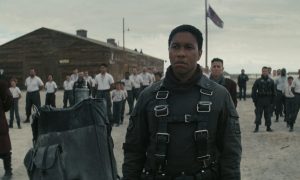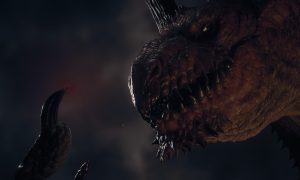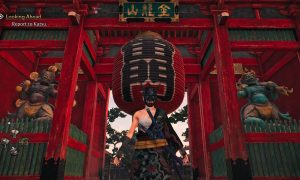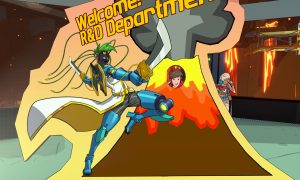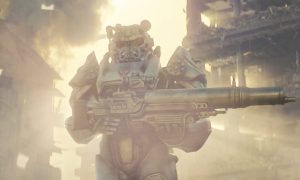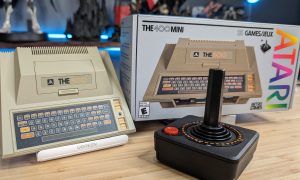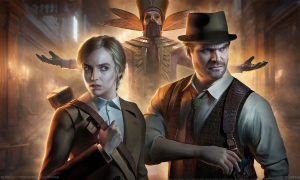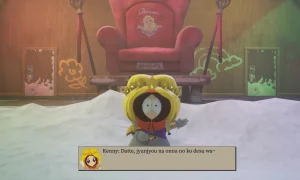
When I got tapped to review Brain Age: Concentration Training (hereafter Brain Age), I really thought it was going to be a very straightforward affair. You know, the basic gist is pretty easy to read – here are some puzzles, here’s an explanation that amounts to ‘doing puzzles helps train your mind to solve complex tasks – like doing puzzles!’, along with a few extra features such as online score comparisons, performance tracking… fun, solid but ultimately not exactly daring stuff. Well, color me impressed – Nintendo managed to take a straightforward concept and get daring with it, and I mean beyond slapping some red skin and devil horns on Dr. Ryuta Kawashima, the brains (ha ha) behind this particular title. Despite Nintendo’s insistence that Brain Age is simply a game, they’ve clearly decided to treat the title more as a legitimate tool for sharpening your cognitive abilities, and the result is a truly unique (if still relatively simple) 3DS title.
Before I go on, I want to tackle the controversial “science” end of this product. If you play Brain Age, you’re going to hear a lot of claims about the possible links between the mini-games you’ll play in the title and potential increases in mental capabilities – concentration, focus, working memory and so on. But if you listen closely, you’re going to notice that all of those links are non-committal: Brain Age may lead to a sharper memory, it is possible that diligently playing the game will yield results that benefit your daily life… in other words, they’re not selling promises here, but they’re informing you about possibilities, and with good reason. The fact is, neuroscience – certainly neuroscience of this sort – is still in the exploratory stages, and scientists whose research suggest the possibility of benefits when playing games like Brain Age are balanced out by scientists whose research suggests otherwise. Both sides tend to point out methodology flaws and loopholes with each other’s work, and really, trying to figure out who has the better case is probably a mental exercise in and of itself. The short version is, I won’t be passing judgment on the implied mental benefits of Brain Age, and to Nintendo’s credit, they do a decent job of presenting Kawashima’s work more as ‘thought-provoking possibility’ and less as the bluff of ‘what science shows is true.’
[singlepic id=10611 w=320 h=240 float=left]The game starts you off with the Dr Kawashima’s disembodied head floating about, giving you a basic rundown of his background and neurological theories, making him come off as a kind of polite Japanese Max Headroom. The information is light, but Dr. Kawashima’s delivery both in the introduction and throughout the game is surprisingly pleasant – he just has a nice, relaxing voice and he communicates his ideas clearly and with grace. Once you get the scientific rundown, you’re introduced to the core of Brain Age’s battery of self-help minigames: the Devilish Training series.
This is where the ‘daring’ aspect of Brain Age comes in: not only do you have to unlock the various mini-games in Brain Age through either good performance or successive days of play, but most of these games only allow you to play them for a maximum of five minutes per day. So once five minutes pass in a particular game, that’s it – you’re finished for the day, your results are placed on a chart, and you either move on to the next game – or, if you’ve finished all the games you want to play for the day… well, go do something else. The impression I got was that this limitation was due to Kawashima’s research showing positive effects being negated by over-playing these games, but even if that’s the case, it also had the side effect of making my Brain Age sessions one of the highlights of my day – especially once you start getting the desire to push your performance to the max.
The Devilish Training games really are devilish. First up is Devilish Calculations, and the concept is simple: the game will give you a series of simple math problems. First up will be 1 + 7, second will be 5 – 2, third will be 9 – 9. Your task is to use the stylus to write down the answer to the problem that you were given – 2 calculations ago. So the answer to 9 – 9 is 8 (since 2 calculations ago you were given 1 + 7). And the answer to the next calculation will be 3 (5 -2)… and on you go. 20-some of these calculations will be thrown at you, and if you score 85% or higher, the difficulty increases both in speed and in how far back you have to remember. Scoring 65% or less correctly will send you back to the previous level, and scoring in between those percentages will have you repeat the level.
[singlepic id=10612 w=320 h=240 float=right]By the way, if Devilish Calculations sounded excruciating to you, well, congratulations on your perceptiveness, because it is. In fact, every single one of the eight Devilish Training tests is easy to learn yet hard to master, and I found no way to just set these tests on an easy-to-defeat mode. No, if you’re doing well, the game rewards you by increasing the difficulty until you start failing. After all, that’s how you’re supposed to see progress – by pushing your mental abilities to the limit. The training variety is also very diverse – over the days of playing the game, you’ll unlock additional mini-game challenges that focus on different approaches to memorization and concentration, all of which struck me as unique from the other mini-games.
Aside from the Devilish Training, there’s also nine supplemental training levels, 9 brain training levels, 3 relaxation levels, and 1 concentration challenge. The ‘brain training’, ‘relaxation’ and ‘supplemental’ mini-games are unique in that you can play them as much as you please per day once you’ve unlocked them, while concentration stands out as an endurance mode version of Devilish Calculations where the goal is to last as long as possible. Your performance on all these levels is recorded, complete with daily progress graphs – and you can also compare your performance to others, or even challenge them via the 3DS’s StreetPass feature.
As a game, Brain Age has been remarkably satisfying to play. There’s something about the variety of admittedly simply yet challenging puzzles and the daily limitations on the core ‘Devilish’ training that has kept me coming back for more. Graphically, the game is on the polished but direct side – you don’t need much in the way of flashy animation to present a player with simple math problems, after all. One minor knock against the game’s controls is the input method – when I have to write in letters and numbers as answers, Brain Age will sometimes get things wrong. Worse, sometimes it will get things ‘right’ before I feel like I’m done writing my answer, thanks to lifting up my stylus from the screen by accident. When you’re trying to hold the answers of the last 6 digits in your mind while doing the mental organization to drop one number and add a new calculation answer, disruptions like that can be supremely irritating. Thankfully this can be gotten around by being more diligent with stylus control – but then again, that’s just one more thing to concentrate on.
[singlepic id=10610 w=320 h=240 float=left]Launching for $35 USD, Brain Age is a bit pricy for what it delivers. But for that price you get a variety of different games that will truly challenge your mind, record your progress, and give you a serious sense of accomplishment if you actually manage to claw your way up in terms of performance. Frankly, if you’re into the basic approach and challenge of this game, you can count on getting a serious amount of mileage out of it There’s a downloadable demo available for Brain Age: Concentration Training right in Nintendo’s eShop, so be sure to check it out if you’re a fan of puzzlers, or if you want to see what happens when neurological research and innovative game development collides.
Victor Grunn has been a gamer since the days of single-button joysticks and the Atari 800XL. When not lamenting the loss of the Ultima series or setting people on fire in Team Fortress 2, he's an aspiring indie game developer and freelance writer.

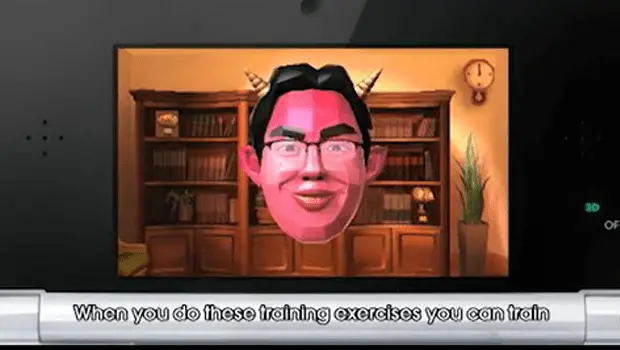
 Buy Now
Buy Now
 Buy Now
Buy Now
 Buy Now
Buy Now
 Buy Now
Buy Now
 Buy Now
Buy Now
 Buy Now
Buy Now
